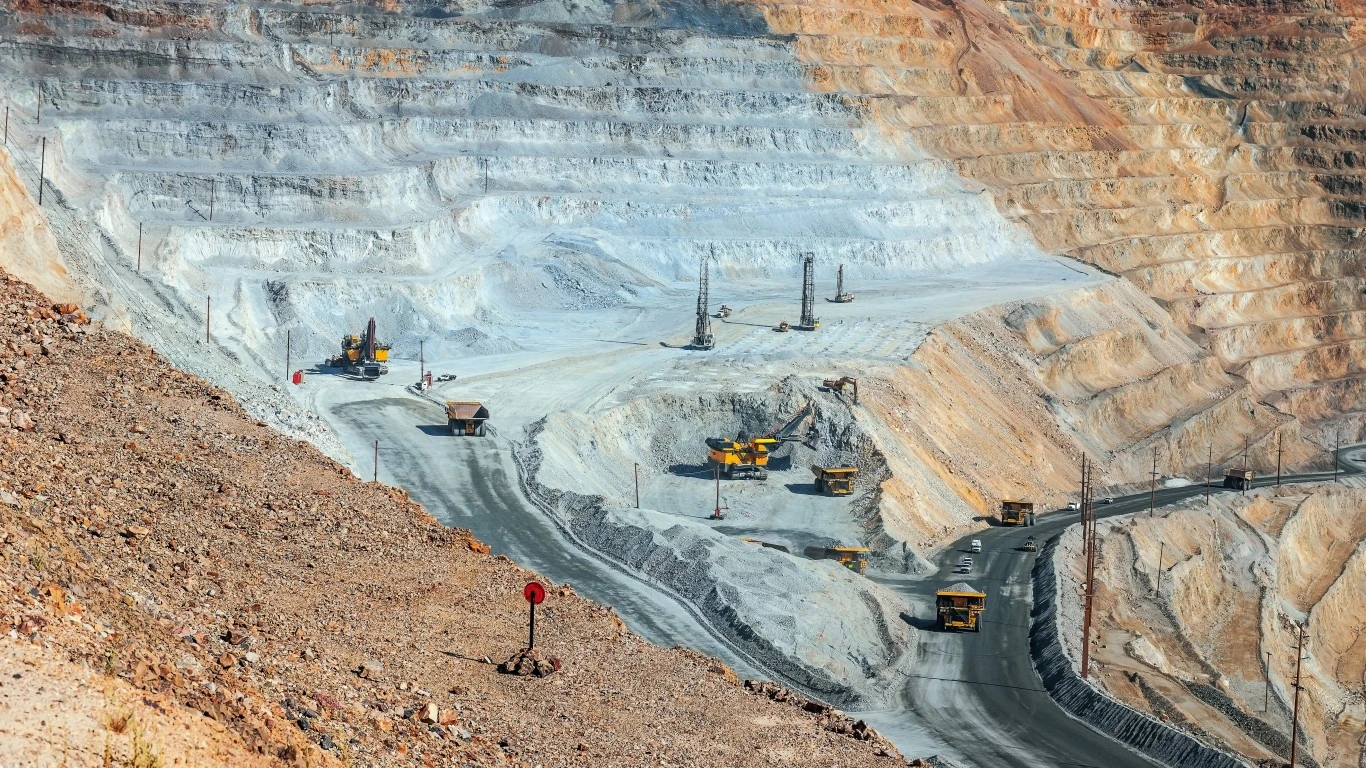
One could argue that the most precious metal being mined these days is lithium. The commodity price of lithium increased by about 400% over the past year, while the price of gold rose by just 4.3%. Shares of four top lithium miners increased in value by about 47%, all the way up to a jump of nearly 315%. None of these miners pays a dividend, however.
Just over half of gold-mining companies do pay a dividend, as do three of four copper miners and three of seven silver miners. Miners of other industrial metals, like aluminum and iron ore, often pay dividends as well.
We wanted to look at the miners that pay the highest dividends. We found five that pay a dividend yield of more than 6%.
Vale
Brazil’s Vale S.A. (NYSE: VALE) produced 300 million metric tons (tonnes) of iron ore in 2020, more than any other company in the world. Brazil trails only Australia as the location of the world’s largest reserves of iron ore, a critical component of steel. Vale is targeting iron ore production of 400 million tonnes this year.
Vale’s share price has dropped by about 8.6% over the past 12 months, including a year-to-date gain of more than 18%. The company has missed analysts’ revenue estimates in each of the past four quarters and beaten the earnings estimate in the last two of the four periods. This is not exactly a stellar record.
Last month, the company announced it would repurchase up to 500 million shares (about 10% of shares outstanding) over a period of 18 months, a program worth about $8.3 billion when it was announced. Combined with a production increase of about 33% and an expected price increase due to the Russian invasion of Ukraine, even coronaviruselated lockdowns in China are unlikely to have a significant impact on the company’s performance this year.
Then there’s the dividend yield of 13.61% that Vale pays in semi-annual installments. Daily trading volume has averaged around 43.3 million shares for the past 10 days, and the company’s payout ratio is nearly 61%. Free cash flow for the past 12 months totaled $17.72 billion.
Rio Tinto
London-based Rio Tinto Group (NYSE: RIO) mines aluminum, copper, diamonds, gold, borates, titanium dioxide, salt, iron ore and lithium at operations all over the world. The company is the world’s second-largest iron ore miner, primarily coming from Rio’s Australian mines. It owns a high-grade lithium development project in Serbia that has had its permits revoked by the government, but the company is still hopeful it can overcome opposition to the project. The company also owns and operates copper mines in Mongolia, Utah and Arizona.
In its operational review for the March quarter, Rio reported lower iron ore shipments both sequentially and year over year. Copper shipments were down 5% sequentially but up 4% year over year. In March, Rio Tinto offered to pay $2.7 billion for the 49% of Turquoise Hill Resources’s Mongolian copper and gold mine.
March quarter copper production at Turquoise Hill was down 33% year over year and 22% sequentially, while gold production fell by 60% year over year and 25% sequentially. The company expects fiscal 2022 copper production of 110,000 to 150,000 tonnes and gold production of 115,000 to 165,000 ounces.
Rio Tinto’s dividend yield is 11.15%, and its daily trading volume is around 4.5 million shares. The mining giant’s payout ratio is about 52%, and its free cash flow for the past four quarters is $17.96 billion.
Sponsored: Tips for Investing
A financial advisor can help you understand the advantages and disadvantages of investment properties. Finding a qualified financial advisor doesn’t have to be hard. SmartAsset’s free tool matches you with up to three financial advisors who serve your area, and you can interview your advisor matches at no cost to decide which one is right for you. If you’re ready to find an advisor who can help you achieve your financial goals, get started now.
Investing in real estate can diversify your portfolio. But expanding your horizons may add additional costs. If you’re an investor looking to minimize expenses, consider checking out online brokerages. They often offer low investment fees, helping you maximize your profit.






